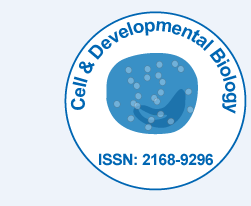
Cell & Developmental Biology
Open Access
ISSN: 2168-9296

ISSN: 2168-9296
Dayami Lopez
Department of Pharmaceutical Sciences, Biomanufacturing Research Institute and Technology Enterprise (BRITE), College of Arts and Sciences, North Carolina Central University, Durham, USA
Regulation of the Hepatic Low Density Lipoprotein Receptor:
High levels of low density lipoprotein (LDL) are well known to be associated with an increased risk for atherosclerosis. The key atherogenic property of LDL particles involves the formation of the atherosclerotic plaque. Since the hepatic LDL receptor (LDLR) is the major determinant of plasma LDL-cholesterol levels, direct regulation of the LDLR gene by factors such as cholesterol biosynthesis inhibitors, currently used to treat hypercholesterolemia, and hormones such as thyroid hormone and insulin, is expected. The goal of our research is to characterize the molecular mechanisms involved in the regulation of the LDLR gene.
Role of Hypothyroidism on Alzheimer’s Disease:
Alzheimer’s disease (AD) is a progressive neurodegenerative disorder that currently affects around 18 million individuals worldwide. The earliest and more prominent symptom of AD is loss of short-term memory. As the disorder progresses, other symptoms such as language impairment, difficulties with complex tasks, depression, psychotic episodes and behavioral changes also appear. Among the risk factors that have been described for AD is hypothyroidism, the second most common endocrine disorder. In fact, studies in both embryonic and adult laboratory mammals demonstrated that thyroid hormone plays a key role in the development and maintenance of basal forebrain cholinergic neurons typically involved in AD. Furthermore, in vitro studies have shown that thyroid hormone may regulate the expression of the APP gene, the precursor of Aβ. Our goal in this research project is to determine whether there is a direct relationship between hypothyroidism and the appearance of AD markers.
Role of Hypothyroidism on Breast Cancer:
Breast cancer is the most common cancer among women and the second leading cause of cancer deaths in women after lung cancer. The outcomes of breast cancer treatment depend greatly on response to therapy and are predicted based on lymph node status and the extent of disease. Extensive research is currently underway to identify agents that could induce apoptosis in breast cancer cells facilitating therapeutic intervention and potentially improve outcomes. A hormone that could be useful in the induction of apoptosis in breast cancer cells is thyroid hormone. In fact, it has been shown that hypothyroidism and low-normal free thyroxine are related with an increased risk of breast cancer in post-menopausal women. In this project, we are currently identifying the mechanisms involved in the control of breast cancer cell proliferation by thyroid hormone.